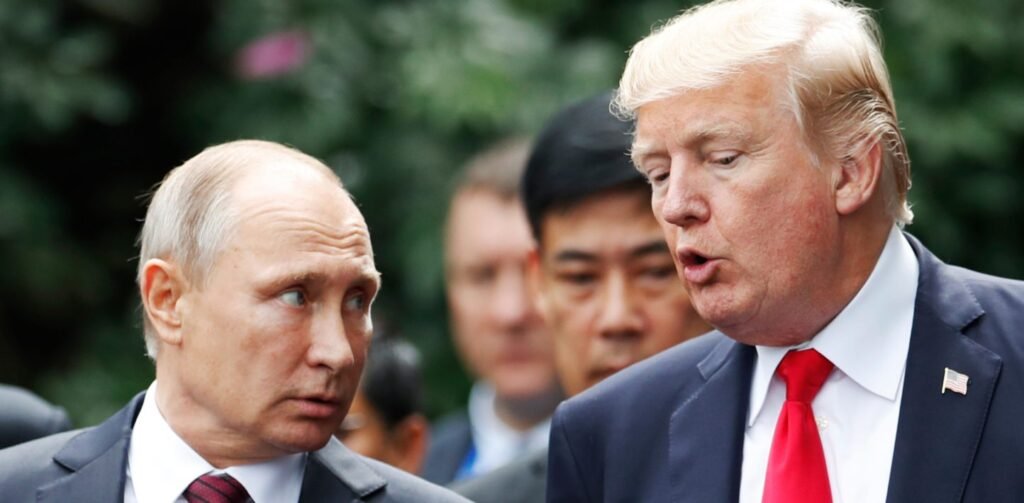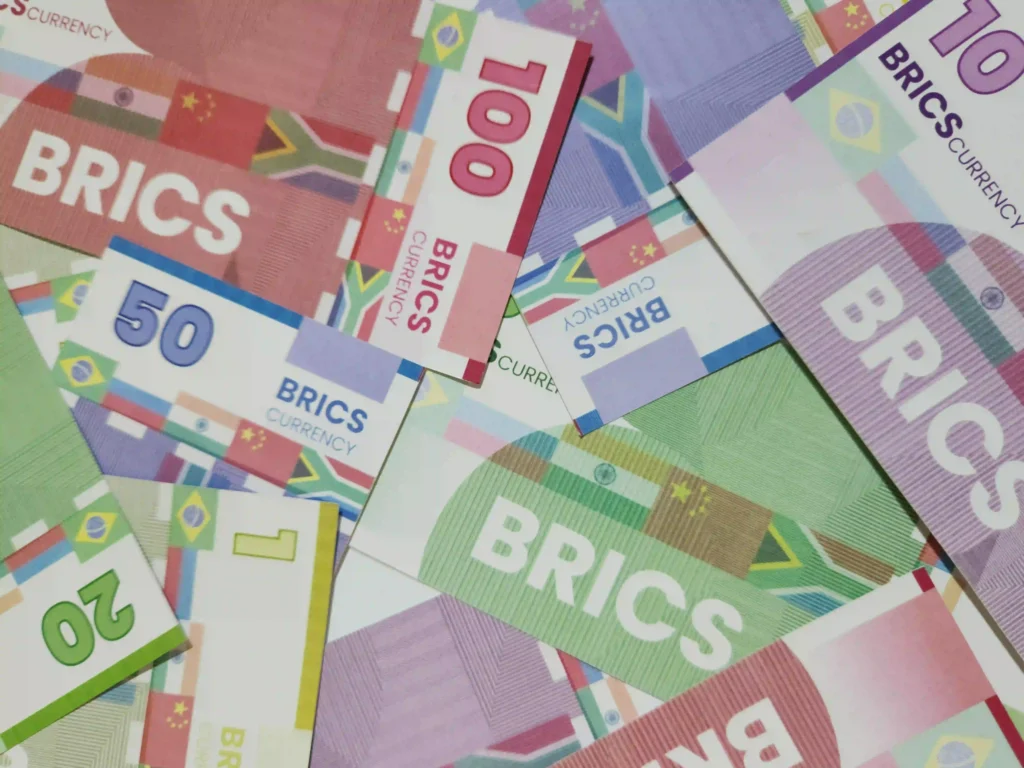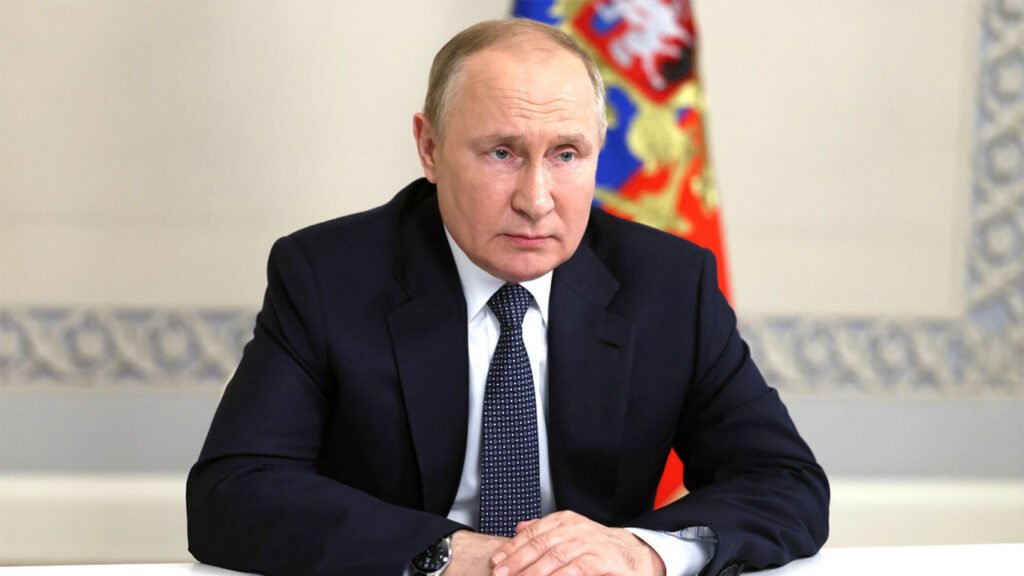In a world where the US dollar has ruled for decades as the undisputed king of global trade, a bold move is underway—one that could reshape financial alliances and shake the very foundation of American economic dominance. At the heart of it stands Russian President Vladimir Putin, who has once again stirred international headlines, this time with a sweeping declaration on de-dollarisation following a significant BRICS summit.
For years, the global economy has danced to the rhythm of the dollar. Whether in oil transactions, international loans, or global reserves, the greenback has maintained a powerful grip. But now, with growing economic divides and geopolitical fractures, that dominance is being openly challenged—and Russia is leading the charge.
Putin’s Declaration: A Wake-Up Call to the West
Following the latest BRICS summit, Vladimir Putin made it crystal clear that Russia is not just discussing de-dollarisation—it is actively building an alternative. In simple terms, this means Russia no longer wants to depend on the US dollar for trade and global finance. The goal? Build a multipolar economic system, reduce dependence on the West, and use currencies like the ruble, yuan, and potentially a new BRICS currency in international trade.
This isn’t just a political stance. It’s a financial revolution. For Putin, it’s about creating stability in a world where sanctions and currency manipulation have been used as tools of control. By moving away from the dollar, Russia aims to safeguard its own economy and influence others to follow suit.

Why Trump Should Be Concerned
Though Donald Trump is no longer in the White House, his political voice and ambitions are still very much alive—and any seismic shift in the dollar’s dominance directly affects America’s standing in the world.
Putin’s declaration, if it gains momentum, could weaken the dollar’s global hold, slow down American economic leverage, and disrupt markets that have long been dollar-centric.
For Trump, who constantly emphasized American strength and supremacy, such a move not only challenges that narrative but could also impact future economic and foreign policies should he return to power.
The Rise of BRICS: More Than Just a Club
The BRICS alliance—Brazil, Russia, India, China, and South Africa—was once seen as a loose economic grouping. But times have changed. With more countries lining up to join, BRICS is rapidly turning into a serious counterweight to Western-led institutions like the IMF and World Bank.

At the recent summit, the tone was clear: this is no longer just talk. There are real steps being taken to create a unified financial system that doesn’t bow to the US dollar. Trade agreements are being restructured. Cross-border payment systems are being tested. And most importantly, the idea of a BRICS currency is gaining traction.
Russia’s push, backed strongly by China, is steering BRICS into an era of economic independence. This isn’t just about currency—it’s about rewriting global rules.
The Bigger Picture: Why De-Dollarisation Matters
To most people, the term “de-dollarisation” might sound technical or boring. But its impact could be massive. Here’s what it means for the world:
- Shifting Trade Patterns: More countries might begin trading in their own currencies or alternatives to the dollar. This means less demand for the US dollar globally.
- Weaker Dollar Demand: If central banks and nations reduce their dollar reserves, it could weaken the value of the dollar over time.
- New Power Centers: Countries like Russia and China gain more influence over global trade and finance. The West could lose its monopoly on setting the rules.
- Inflation and Market Volatility: A drop in dollar dominance could create ripple effects across markets, potentially impacting interest rates, trade policies, and investment flows.
Is the World Ready for a Post-Dollar Era?
It’s not just Russia that’s had enough of dollar dependency. Many developing nations have faced the sharp edge of US sanctions or currency-related vulnerabilities. For them, an alternative system—led by BRICS—offers a way out.
The global financial system is deeply interconnected, and untangling from the dollar won’t happen overnight. But signs of change are all around. Countries are signing bilateral trade deals in local currencies. Central banks are increasing gold reserves. And trust in Western financial systems, especially after recent global crises, is slowly eroding.
Putin’s Strategy: Bold, Calculated, and Global

Putin’s move isn’t isolated. It’s part of a larger vision—a world where nations can trade freely without fear of being economically punished by the West. By announcing this shift so publicly after the BRICS summit, he’s sending a message: Russia is not alone, and the future will not be dominated by a single currency.
Russia has already begun conducting trade in rubles and yuan with major partners like China and India. It’s pushing for energy deals outside the dollar zone. And with support from other BRICS nations, it is laying the foundation for a new economic order.
The American Response: Watching, Waiting, and Worrying
The US is watching this shift with caution. While Washington hasn’t directly responded to Putin’s latest announcement, the ripple effect is clear. Policy-makers, financial analysts, and global investors are all paying close attention.
If the dollar begins to lose its grip, America’s ability to print money cheaply, impose sanctions, and control trade norms will be tested.
Trump, who has often questioned America’s foreign commitments and trade policies, might actually agree with parts of the BRICS push for sovereignty—but he would never accept a weakened US dollar. For someone who built his brand on power and dominance, the idea of other nations rejecting the dollar is an outright threat.
What Happens Next?
This moment could be seen as the beginning of a long-term transformation. BRICS, with Putin’s aggressive push, is no longer playing a supporting role in global finance. It’s moving to center stage.
The path ahead won’t be smooth. Convincing nations to drop the dollar will take time, trust, and a reliable alternative. But if momentum grows, the dollar may gradually lose its golden status.
Countries fed up with Western pressure now have a reason to reconsider their allegiances. Putin’s vision, no matter how controversial, is finding a growing audience.
Final Thoughts
Putin’s de-dollarisation announcement isn’t just another political move. It’s a wake-up call for the West and a challenge to decades of economic dominance by the US.
Whether this leads to a new financial system or just nudges the existing one into more balance, one thing is certain: the age of blind dollar dominance is being questioned. And in that question lies the future of global power.
As Trump watches from the sidelines—or prepares for a political comeback—he may find himself facing a very different world than the one he left behind. One where the dollar is no longer the universal language of power. And that shift has already begun.
Also read : Unbelievable Ways E-Commerce Shapes Young Minds to Buy More











Leave a comment